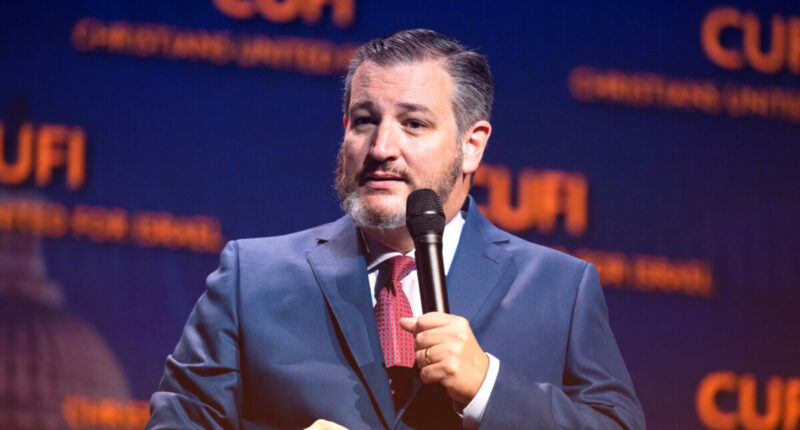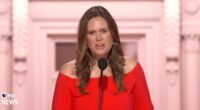Share this @internewscast.com
At the recent Christians United for Israel Summit, Sen. Ted Cruz doubled down on a long-debated issue, defending the over $3 billion the United States sends to Israel annually as “actually a bargain” for American national security.
Ted Cruz’s recent defense of substantial U.S. financial aid to Israel highlights ongoing debates about how American policy is influenced by pro-Israel perspectives, often perceived as contrary to U.S. sovereignty and interests.
In a dramatic assertion, Cruz argued that the significant U.S. aid to Israel is justified because it provides the U.S. access to Mossad’s elite intelligence resources. “The $3 billion annually sent to Israel is a good deal since America benefits from Mossad’s high-level intelligence,” Cruz stated. He elaborated that duplicating Mossad’s capabilities within the U.S. would cost tens of billions, and that’s just for a single intelligence agency.
Expressing his firm belief in this strategic partnership, Cruz urged, “Every American should appreciate the protection and intelligence Israel and Mossad offer, which have undoubtedly saved countless American lives.”
However, Cruz’s argument, which packages the aid as a security necessity, has not allayed concerns about unwavering U.S. support for foreign agendas. This commitment, as exemplified by Cruz’s remarks, is criticized for fostering an expensive and unchecked influence on both U.S. foreign and domestic policies.
On social media platform X, commentator Myron Gaines sharply critiqued Cruz’s stance, capturing public discontent: “We wouldn’t need their ‘top level intelligence’ if they weren’t instigating wars and false operations throughout the Middle East.”
There’s a growing perception that U.S. involvement in international conflicts often prioritizes Israeli interests over American ones, leading to military actions that compromise American national interests and regional peace.
But while Cruz’s premise attempts to cloak the gargantuan aid package in a veil of pragmatic security logic, it is precisely that unwavering loyalty to foreign powers that many Americans have grown weary of. The unholy alliance epitomized by Cruz’s statement fuels an expensive and unaccountable Zionist influence over American foreign and domestic policy.
Commentator Myron Gaines, responding sharply to Cruz on X, echoed public skepticism: “We wouldn’t need their “top level intelligence” if they weren’t starting wars and false flagging all over the middle east.”
It is difficult to overlook how repeatedly the United States has enabled wars and interventions that do not serve American national interests but instead prioritize Israeli strategic objectives, often at the expense of ordinary Americans and regional stability.
Cruz’s rhetoric conveniently sidesteps these realities while urging gratitude toward an intelligence agency known for its covert operations across the Middle East—missions that have often exacerbated regional chaos and endangered U.S. credibility.
This sentiment is especially grating to those who believe that American policy should prioritize protecting its own citizens over indulging foreign intelligence agendas. While Cruz emphasizes the cost-effectiveness of the arrangement, he neglects to mention the broader geopolitical costs, including endless conflicts, billions spent on foreign wars, and the growing threat of backlash due to perceived U.S. favoritism.
At a time when the American public increasingly demands accountability and realignment of priorities, Cruz’s speech exemplifies the problem: politicians beholden to domestic pro-Israel lobbies whose narrow focus undermines America’s broader strategic interests.
Cruz and other Zionist-aligned lawmakers continue to push narratives that frame massive aid and intelligence sharing as indispensable, while critical voices warning against this imbalance remain marginalized or vilified.
The real question Americans should ask is: Why are their tax dollars spent to fund foreign intelligence services whose missions may not always align with America’s security? And why are politicians like Cruz so resolute in defending this imbalance, while ignoring the voices calling for a more independent, America-first foreign policy?

















